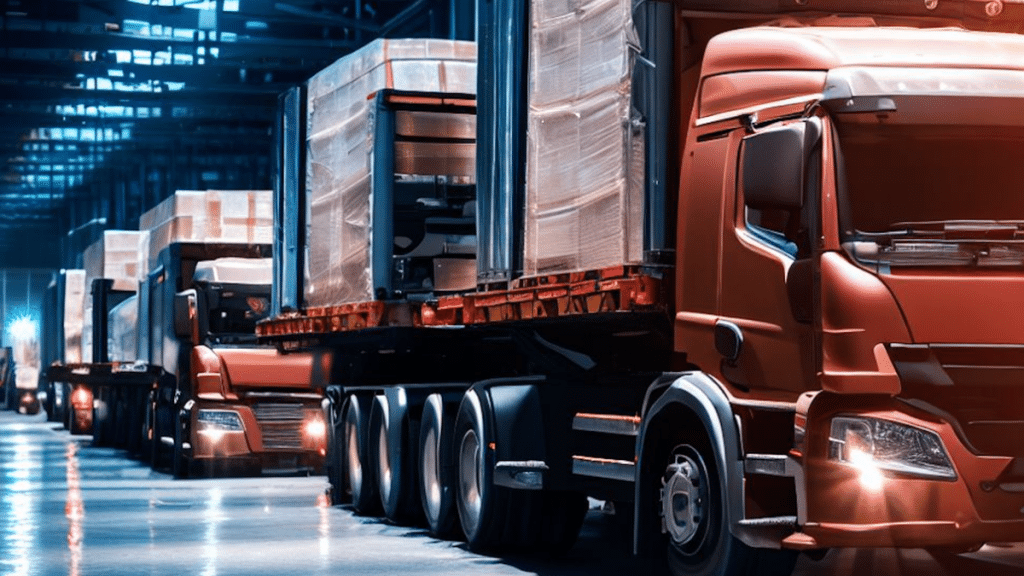The rapid evolution of the transport and logistics sectors is greatly attributed to the most recent models of heavy commercial vehicles. These heavy trucks are enhancing global movement of commodities thereby facilitating faster, leaner and greener supply chain systems. Business can now meet the ever increasing needs in the world market better with trucks that have improved fuel economies, are safer, and more integrated.
Better Fuel Efficiency and Lower Costs
Trucking companies incur huge expenses on fuel, making any enhancement in fuel efficiency highly significant. The engines and streamlining incorporated in modern trucks allow them to develop greater horsepower while consuming less fuel than before. As a result, the amount of money that trucking companies use for buying fuel reduces, contributing towards cutting down the cost of transportation in general.
Improved fuel efficiency also helps reduce environmental impact. As fuel consumption goes down, carbon emissions are lower, which is important as businesses face increasing pressure to adopt more sustainable practices. Current prices for Volvo FH16 models, known for their power and fuel efficiency, reflect the high demand for advanced trucks that can meet these operational needs.
Smarter Safety Features
The trucking industry always gives priority to safety. Modern trucks have state-of-the-art safety features designed to prevent accidents and keep drivers, loads, and all other motorists safe. The introduction of features such as automatic emergency braking, lane-keeping assist, and adaptive cruise control has increased driver safety during long hauls.
These safety technologies also reduce the risk of costly accidents, lower insurance premiums, and help trucking companies comply with stricter safety regulations. Beyond just protecting drivers, these systems help improve overall road safety, benefiting everyone.
Improved Connectivity for Better Management
Today’s trucks are more connected than ever. Modern heavy trucks come with telematics systems that send real-time data back to fleet managers. This data can help optimize routes, track fuel usage, and predict when maintenance is needed. With better insights into how trucks are performing, businesses can cut costs and avoid unexpected breakdowns.
For fleet managers, this connectivity makes it easier to stay on top of operations, improve efficiency, and keep customers informed about their shipments. Real-time tracking means businesses can meet tight deadlines and keep their supply chains running smoothly.
Sustainability and Cleaner Transportation
As environmental concerns grow, the trucking industry is moving towards cleaner, more sustainable solutions. Newer trucks are offering options to use alternative fuels like natural gas or electricity, reducing the dependence on diesel. This shift is important as governments around the world push for lower emissions and greener transportation practices.
In addition to alternative fuels, manufacturers are working on improving fuel efficiency even further. The combination of cleaner energy and better fuel use is helping trucking companies reduce their carbon footprints while still meeting the demands of global supply chains.
Looking to the Future: Electric and Autonomous Trucks
The future of heavy trucks holds even more exciting possibilities. Electric trucks are on the rise, promising a cleaner way to transport goods with zero emissions. Though they are still being developed, electric trucks could soon be a key part of many fleets, particularly in urban areas where pollution is a concern.
Self-driving trucks, which are also under experimentation, may offer a solution. The removal of human errors could lead to reduced labor expenses and enhanced safety from these types of vehicles. Even though this technology is not completely implemented, it is evident that driverless trucks can revolutionize the sector, increasing efficiency while reducing the need for human input in transportation.
Summary
Global supply chains are greatly affected by the most recent models of heavy commercial vehicles. These trucks have played a role in enabling businesses to cut down on costs, reduce emissions and also move goods conveniently because they are efficient in terms of fuel usage, safe, connected and support sustainability than ever before. The future is focused on electric, driverless transport systems among other emerging technologies that have an impact in the transportation sector at large. With these changes, it can be seen that there is development within the logistics sector which enables it to address the challenges posed by an evolving global economy.
